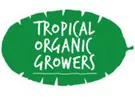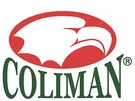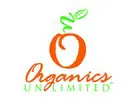Over the past 18 months, society has endured unprecedented health, social and economic turmoil simultaneously on a global scale. The Mexican organic banana industry has successfully produced and delivered the highest quality fruit possible. "In the last 12 months, our industry has delivered more than seven million boxes of organic bananas to the U.S. market," said officials of Organics Unlimited, Coliman Bananas and Tropical Organic Growers in a joint statement. Mexico recently became the second largest source of organic bananas to America, second only to Ecuador. At this rate of growth, Mexico may well become the largest source of organic bananas to the U.S. in the coming years.
 During these challenging times, the banana industry has undergone intense cost pressure and has absorbed it to ensure that consumers can continue buying affordable organic bananas. However, the current commodity pricing surge has made this effort unbearable any longer. Packing material prices have risen nearly 20 percent and plastic bags have gone up 15 percent. "Labor costs have also increased nearly double-digits as we have supported our workforce throughout the pandemic. As experts indicate, there is no end in sight."
During these challenging times, the banana industry has undergone intense cost pressure and has absorbed it to ensure that consumers can continue buying affordable organic bananas. However, the current commodity pricing surge has made this effort unbearable any longer. Packing material prices have risen nearly 20 percent and plastic bags have gone up 15 percent. "Labor costs have also increased nearly double-digits as we have supported our workforce throughout the pandemic. As experts indicate, there is no end in sight."
The world’s shipping container shortage has not only caused a supply chain nightmare, but also put additional pressure on logistics costs that have skyrocketed over 15 percent from pre-pandemic rates.
Additionally, higher costs have come from ensuring a safe, COVID-free environment at the shippers' operations to give employees the adequate conditions necessary to continue working, despite much of the world being locked down at home to stay safe. "Furthermore, we have suffered several major climate disasters in the past few months as two hurricanes, Dolores and Nora, have impacted production areas on the Pacific shore and generated considerable loss of fruit and additional unexpected costs."
 "We remain steadfastly committed to harvesting organic bananas to ensure that supermarket shelves remain well-stocked. However, we cannot support this pressure any longer." We have been struggling with reduced margins for several years, but the current situation is impossible. "Organic banana prices have gone down systematically in the past 10 years, and although we want to offer competitive prices to increase the consumer base and offer affordable fruit, we can no longer sustain what in many cases has become a negative margin situation." Organic bananas are not only the cheapest organic fruit offered, but they are also cheaper than any other conventional fruit sold in stores.
"We remain steadfastly committed to harvesting organic bananas to ensure that supermarket shelves remain well-stocked. However, we cannot support this pressure any longer." We have been struggling with reduced margins for several years, but the current situation is impossible. "Organic banana prices have gone down systematically in the past 10 years, and although we want to offer competitive prices to increase the consumer base and offer affordable fruit, we can no longer sustain what in many cases has become a negative margin situation." Organic bananas are not only the cheapest organic fruit offered, but they are also cheaper than any other conventional fruit sold in stores.
Growing organic has a much higher cost structure due to needing to use certified organic inputs, non-chemical solutions and sustainable farming practices. "Nevertheless, we see in U.S. stores as low as a $.10 per pound price difference between conventional/organic presentations." Input prices rose annually for the past decade while organic banana prices dropped during the same period. Now is the time for a price adjustment for organic bananas to promote sustainable, organic agriculture.
 For more information:
For more information:
Patrick Pierce
Tel: +1 (619) 807-0850
patrickp@osterads.com
